The Best Coffee Makers of 2025: The Ultimate Guide
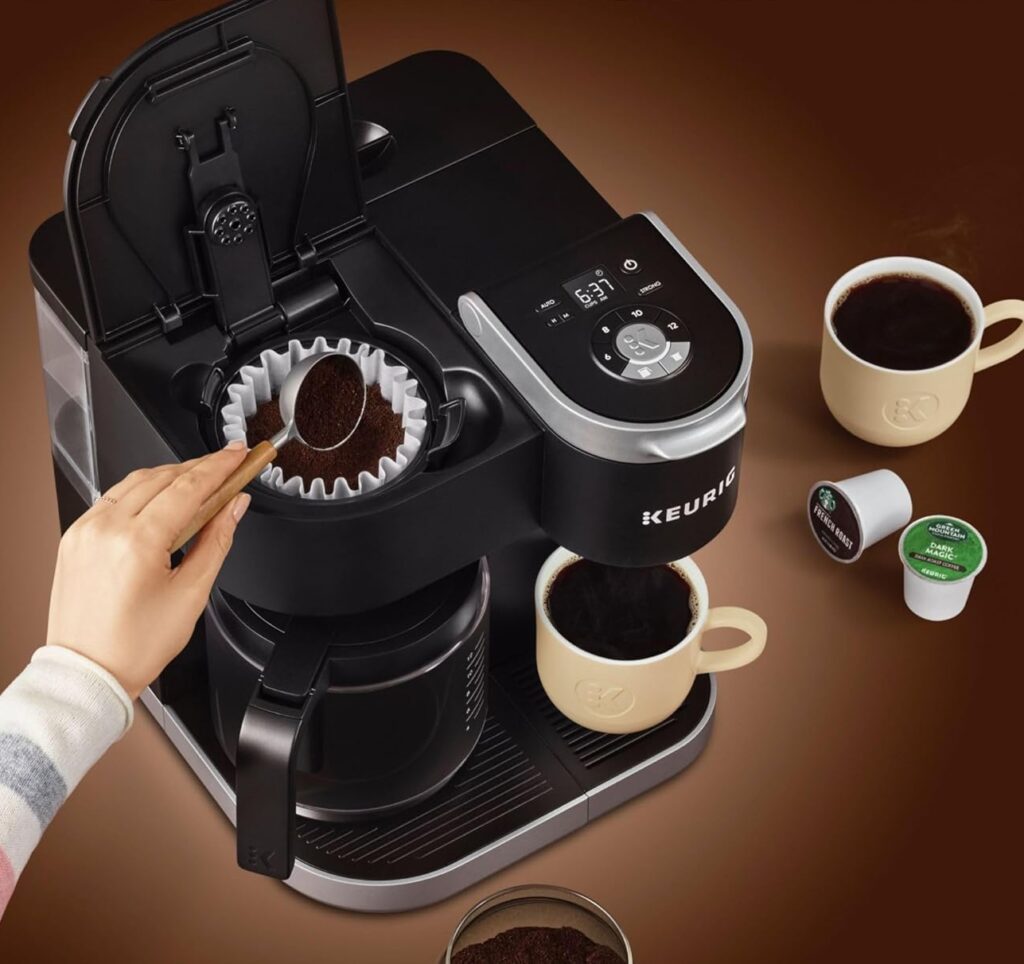
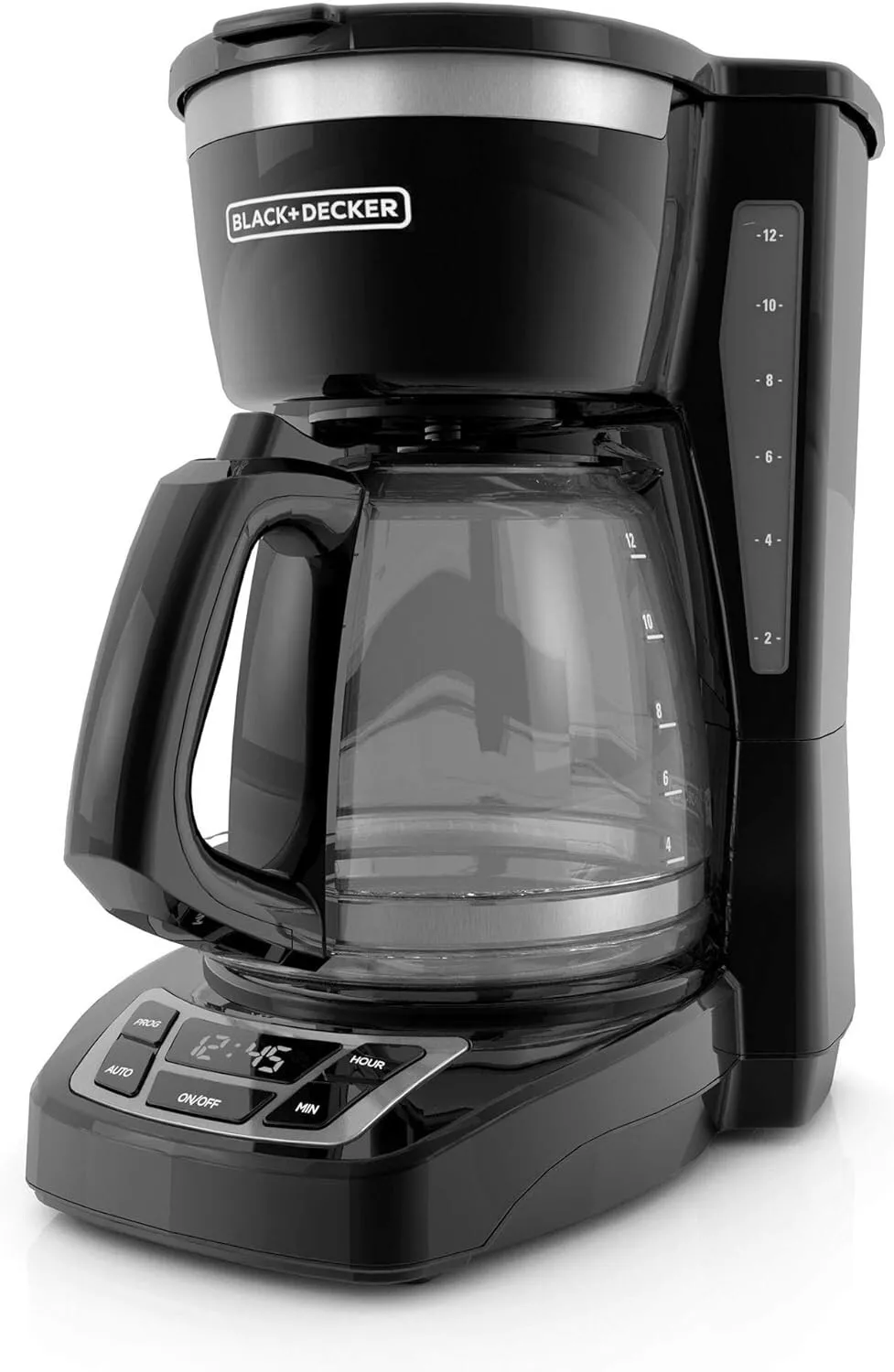
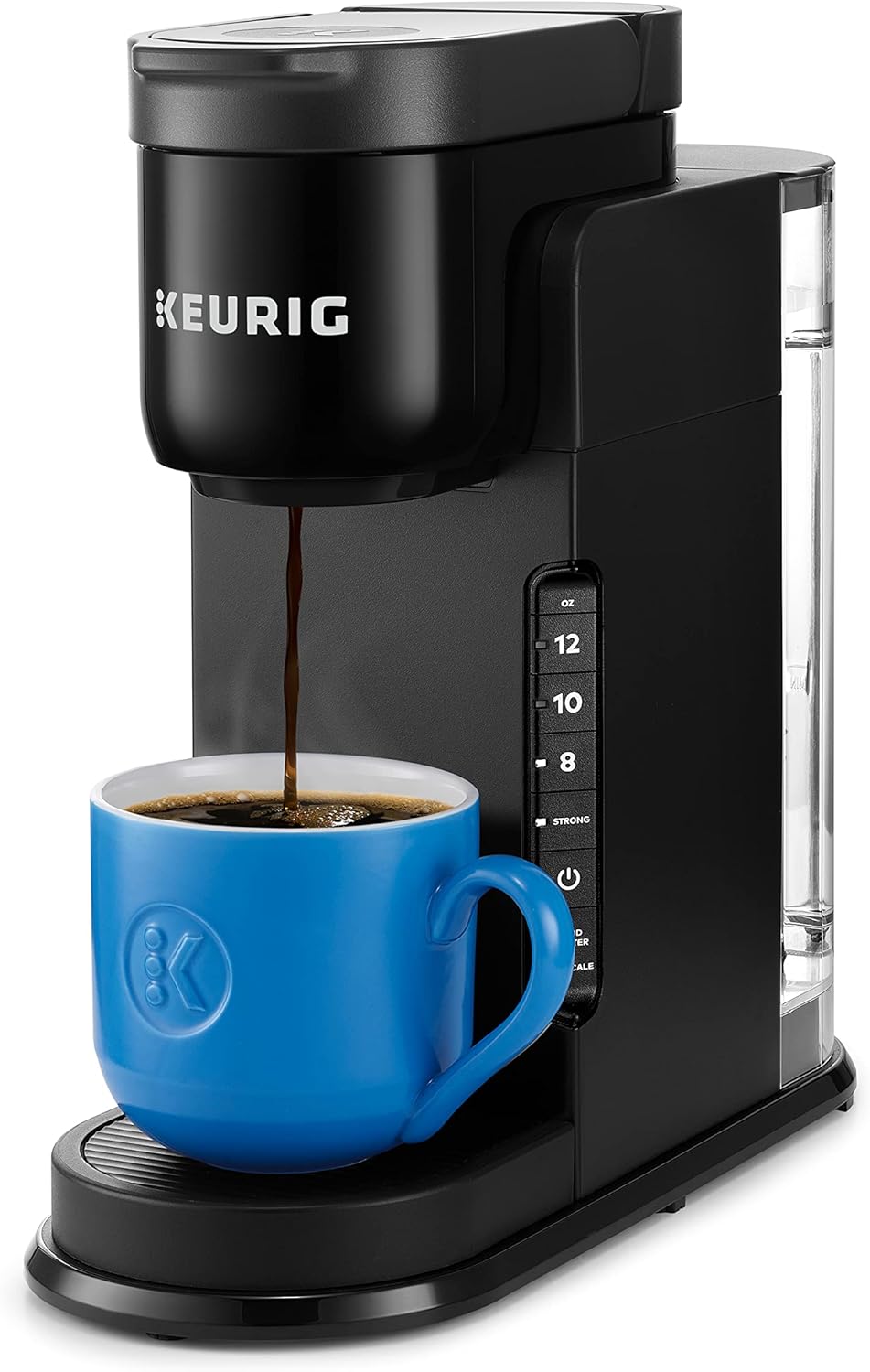
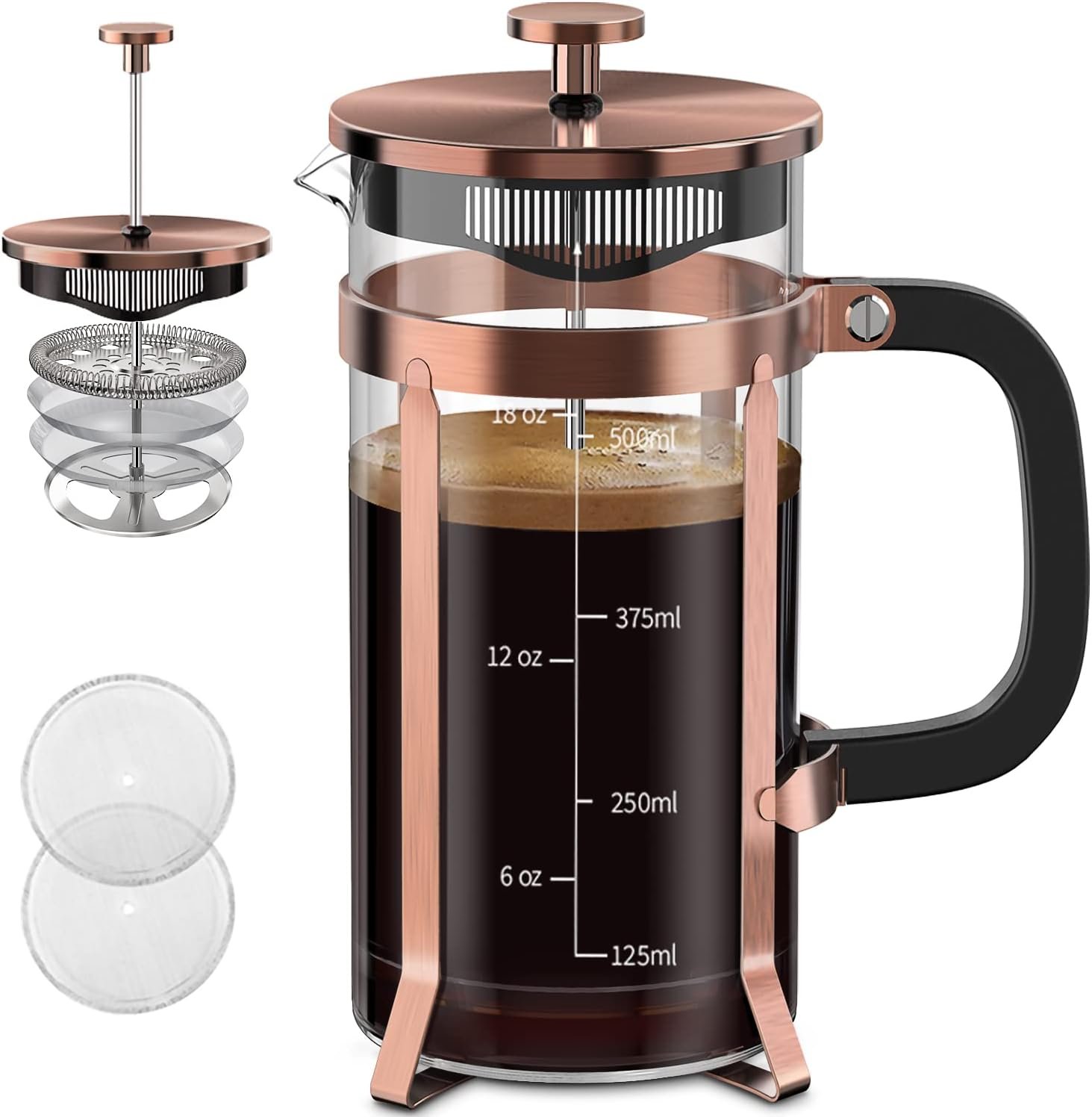

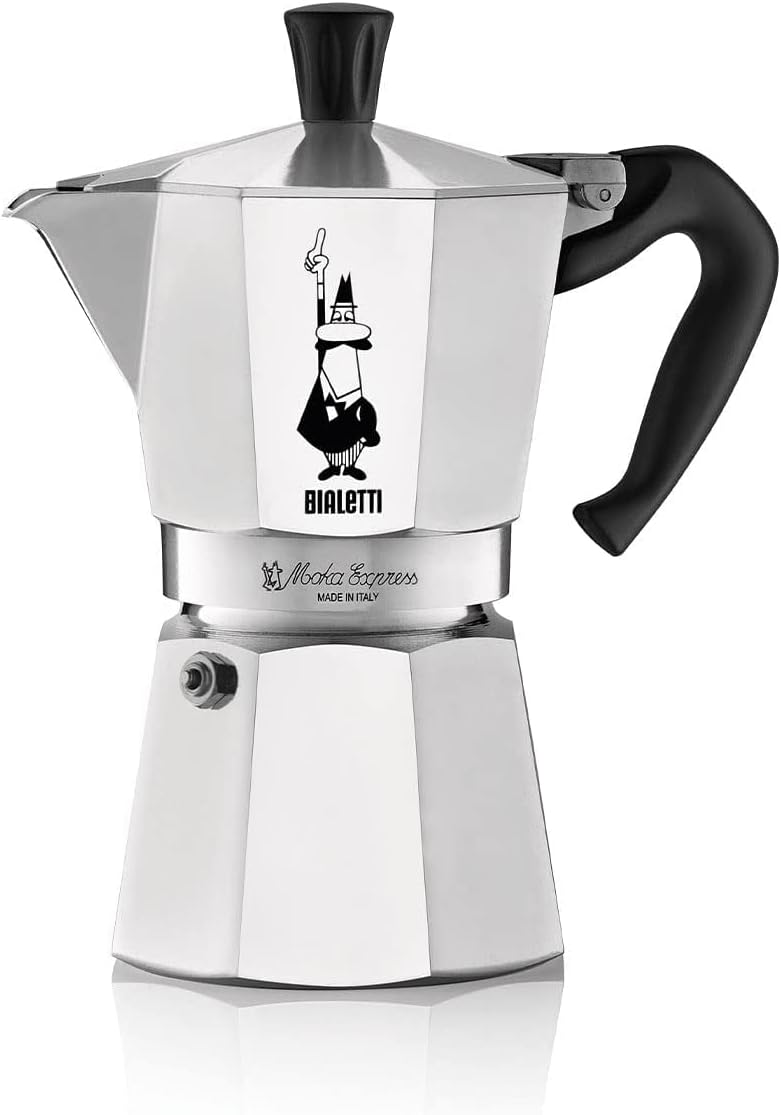
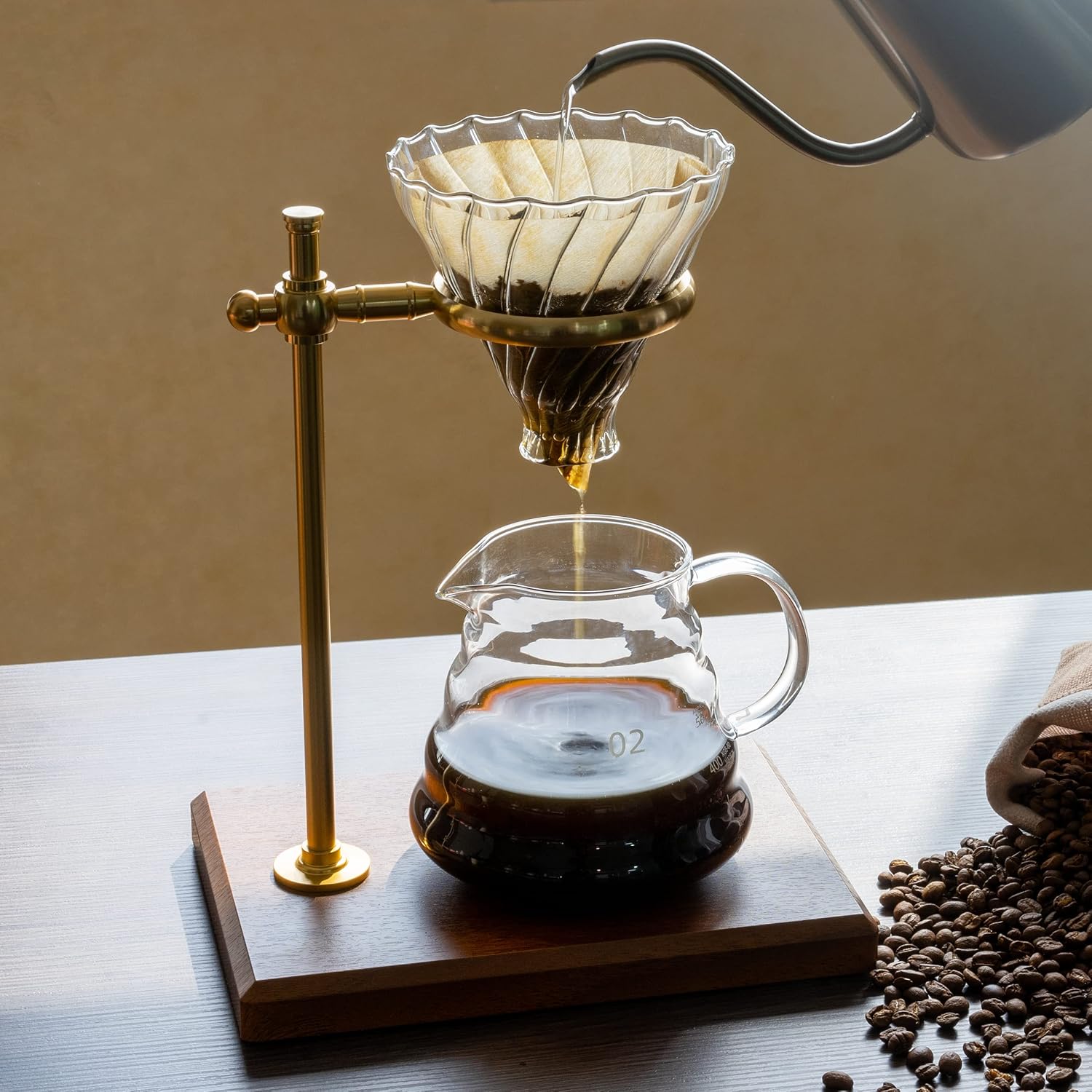
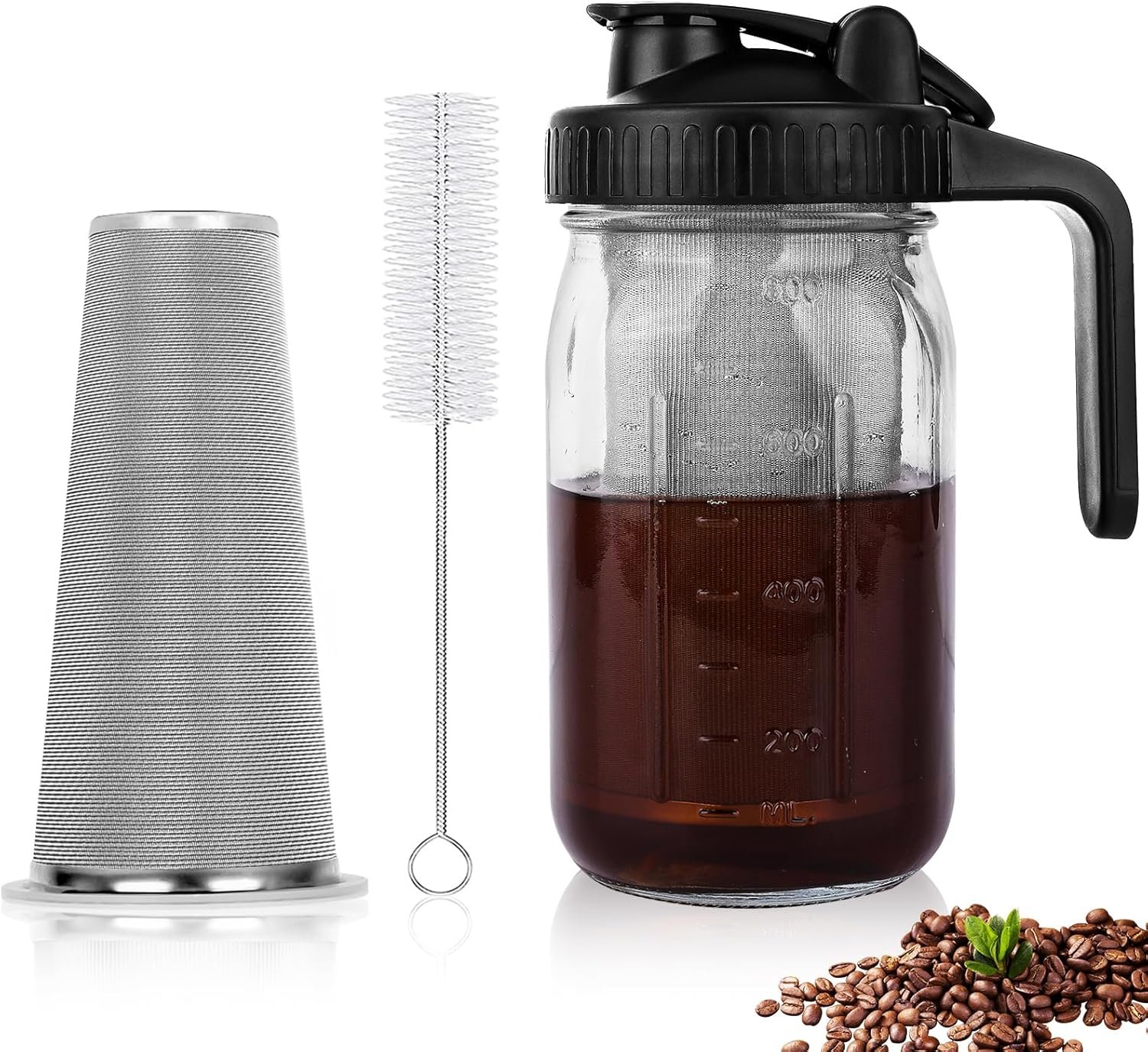
The Best Coffee Makers 2025 on Amazon
Keurig K-Elite Coffee Maker
The go-to choice for quick, customizable coffee
- WHAT’S IN THE BOX: One water filter handle, and one filter to help ensure your beverages taste their absolute best.Filte…
- BREWS MULTIPLE CUP SIZES: 4, 6, 8, 10, 12oz Enjoy the most popular cup sizes.
- STRONG BREW BUTTON: Increases the strength and bold taste of your coffee’s flavor.
- ICED SETTING: Brew hot over ice at the touch of a button for full-flavored, delicious iced coffee.
$129.99
Black+Decker CM1160B-1
An affordable, reliable classic for drip coffee lovers
- 12-CUP DURALIFE GLASS CARAFE: The sturdy 12-cup* carafe has measurement markings for accurate filling and an easy-grip h…
- SNEAK-A-CUP FEATURE TO PREVENT DRIPS: This feature temporarily stops the flow of coffee so you can pour your first cup b…
- EASY-VIEW WATER WINDOW: The front-facing window shows you the exact amount of water that will turn into coffee.
$40.99
CASABREWS Espresso Machine 20 Bar
The compact espresso maker for café-quality drinks at home
- Make Your Favorite Espresso Coffee At Home: The CASABREWS coffee machine with milk frother allows you to prepare all you…
- Professional 20 Bar Pressure System: Semi-Automatic 2-in-1 Espresso Maker, with 20 bar professional Italian pump and 135…
- Milk Frothing System: Our espresso machine with milk frother has a powerful steam wand, so you can texture creamy, rich …
$139.99
De’Longhi Stilosa Manual Espresso Machine
Affordable, compact, and built for espresso lovers seeking manual control
- Contemporary and Compact Design: The perfect addition to your modern kitchen counter top, without taking up too much spa…
- 15 BAR Pump: Guarantees the optimal pressure to extract a single or double espresso, so your coffee drink comes out perf…
- Manual Milk Frother: Texture your milk with ease to create an authentic cappuccino, latte or flat white.
Breville Barista Express Espresso Machine
The ultimate all-in-one espresso machine for aspiring home baristas
- The Breville Barista Express delivers third wave specialty coffee at home using the 4 keys formula and is part of the Ba…
- DOSE CONTROL GRINDING: Integrated precision conical burr grinder grinds on demand to deliver the right amount of freshly…
- OPTIMAL WATER PRESSURE: Low pressure pre-infusion gradually increases pressure at the start and helps ensure all the fla…
$678.95
Cuisinart DCC-3200P1 Coffee Maker (14-Cup)
Reliable, programmable, and perfect for families or gatherings
- ADJUSTABLE CARAFE TEMP: Our Cuisinart 14-Cup* Coffee Maker with adjustable carafe temp feature adjusts the warming plate…
- BREW STRENGTH CONTROL: This coffee maker customizes your brew to perfection with regular or bold settings, catering to y…
- FULLY AUTOMATIC COFFEE MAKER: The coffee machine offers convenience with 24-hour programmability, 1-4 cup settings, auto…
$119.95
Ninja Hot & Iced XL – Cold Brewed System
The ultimate single-serve brewer for hot and iced coffee enthusiasts
- 4 BREW STYLES: Select from Classic, Rich, Over Ice, and Cold Brew for coffee any way you like it.
- ICED COFFEE: Bold iced coffee flavor that’s never watered down.
- COLD BREW: Smooth, fresh cold brew in as little as 10 minutes.
- 8 BREW SIZES: Small cup, regular cup, XL cup, travel size, or XL travel size. Plus, you can choose from a quarter, half,…
- REMOVABLE RESERVOIR WITH AUTO-METERING: Easy-to-fill, removable water reservoir with auto-metering to sense water amount…
$153.80
Bonavita Connoisseur One-Touch Coffee Maker
For those who value simplicity and consistent performance
- 8 CUP IN 6 MINS: Brew a full 8-cup carafe in just 6 minutes with one touch. The powerful 1500-watt heater ensures an opt…
- ONE-TOUCH FAST BREW: Start your day effortlessly with a single press, enjoying professional and fresh coffee from Bonavi…
- EVEN EXTRACTION FOR FULL FLAVOR: The specially designed showerhead ensures even saturation of coffee grounds, perfectly …
Bialetti Moka Express 6-Cup Stovetop
The original Italian espresso maker, perfect for rich, strong coffee
- The original moka coffee pot: Moka Express is the original stovetop espresso maker, it provides the experience of the re…
- Made in Italy: it is Made in Italy and its quality is enhanced by the patented safety valve which makes it easy to clean…
- How to prepare the coffee: fill the boiler up to the safety valve, fill it up with ground coffee without pressing, close…
$54.95
BAYKA 34-Ounce (1L) French Press
Elegant, durable, and perfect for a rich, full-bodied coffee experience
- Perfect Gift for Coffee Lovers:With its classic finish and premium design, this 34oz French press makes a stylish and pr…
- Pure and Authentic Coffee Taste: Glass French presses are favored by coffee enthusiasts for preserving the coffee’s natu…
- Durable and Long-Lasting: Crafted from high-quality borosilicate glass, our French press is resistant to thermal shock a…
$26.99
Exploring Different Types of Coffee
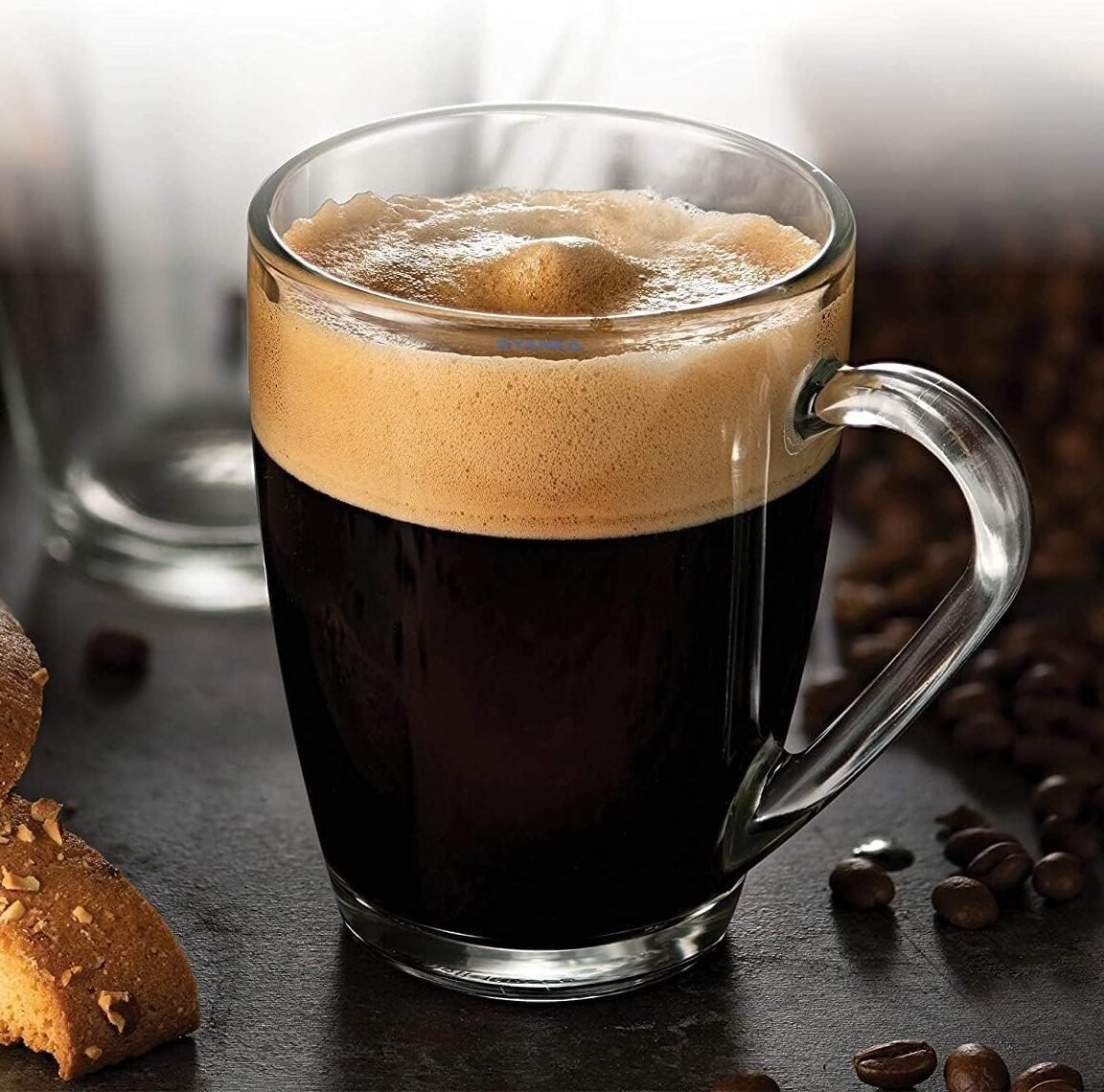
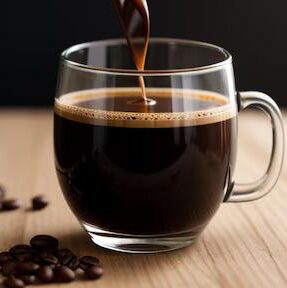

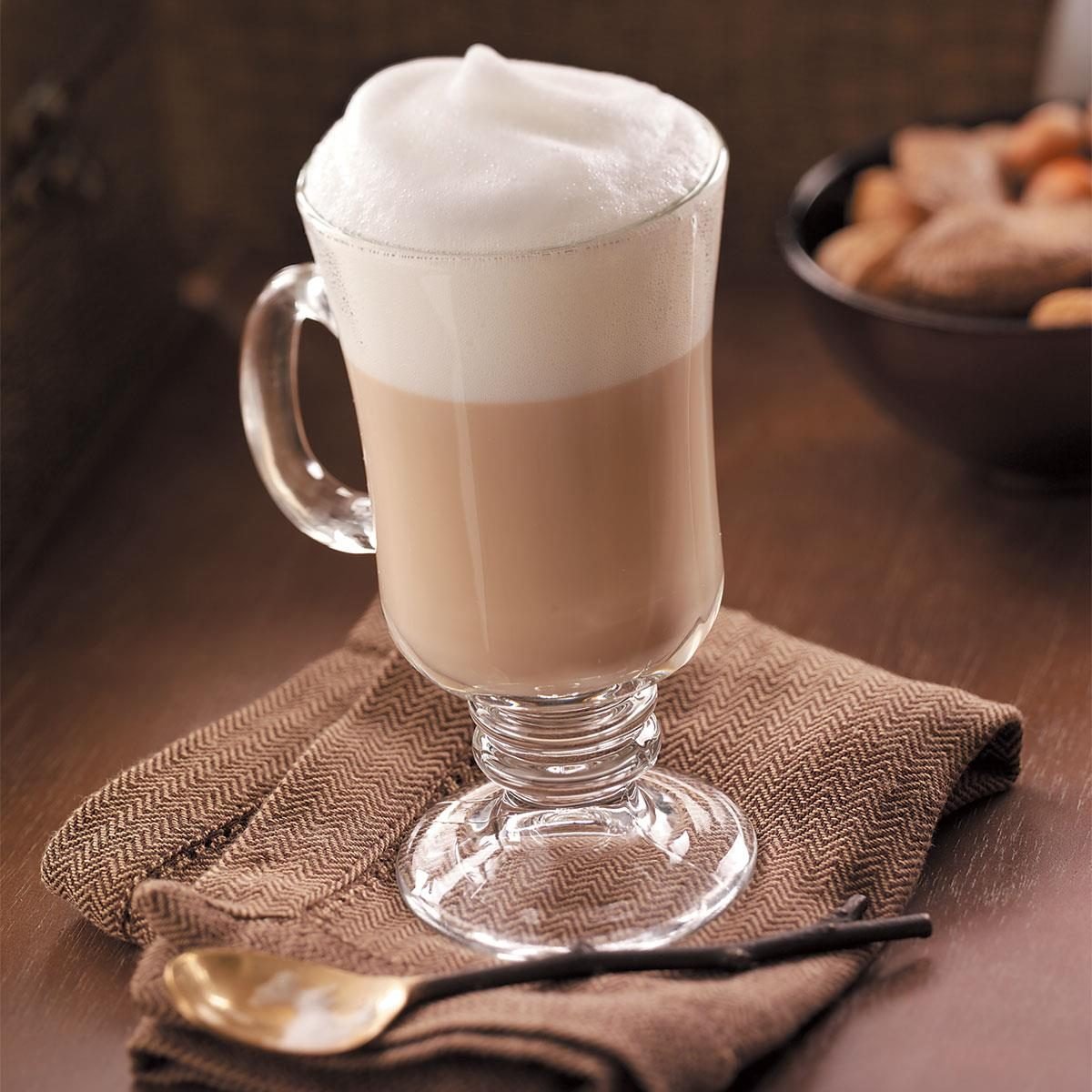

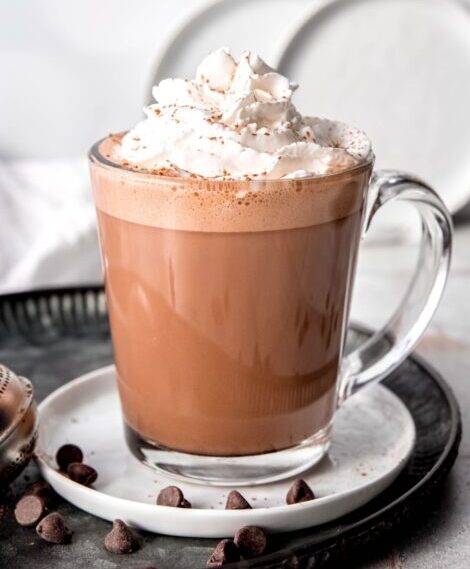
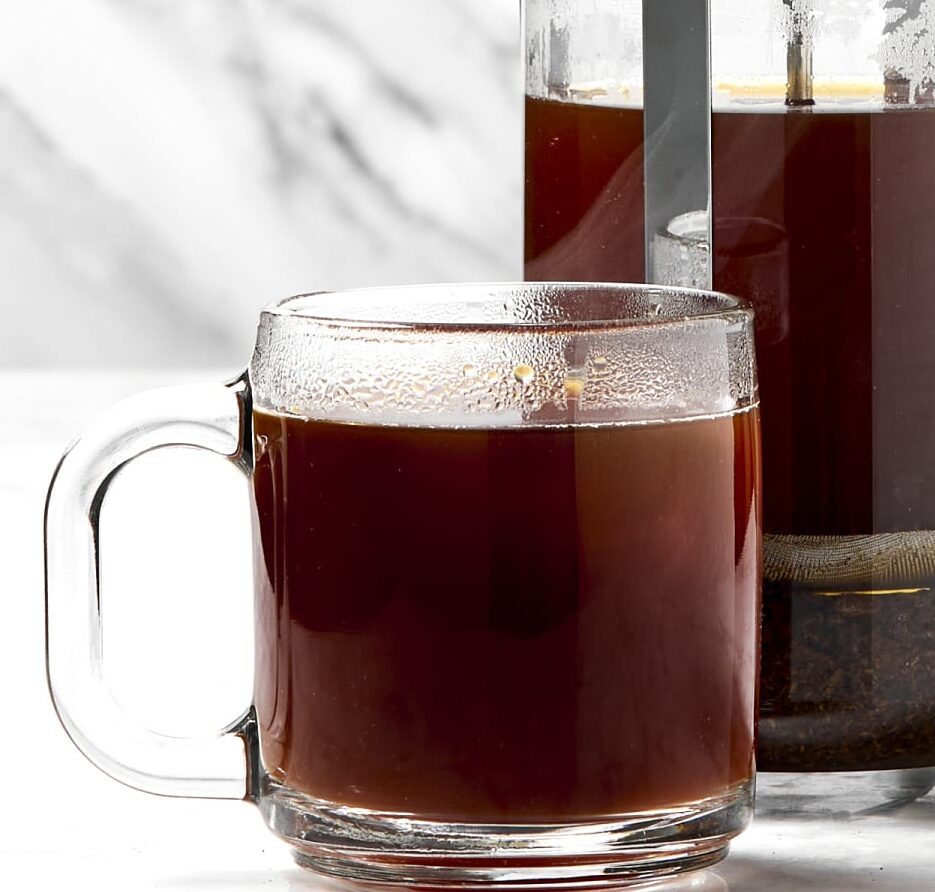
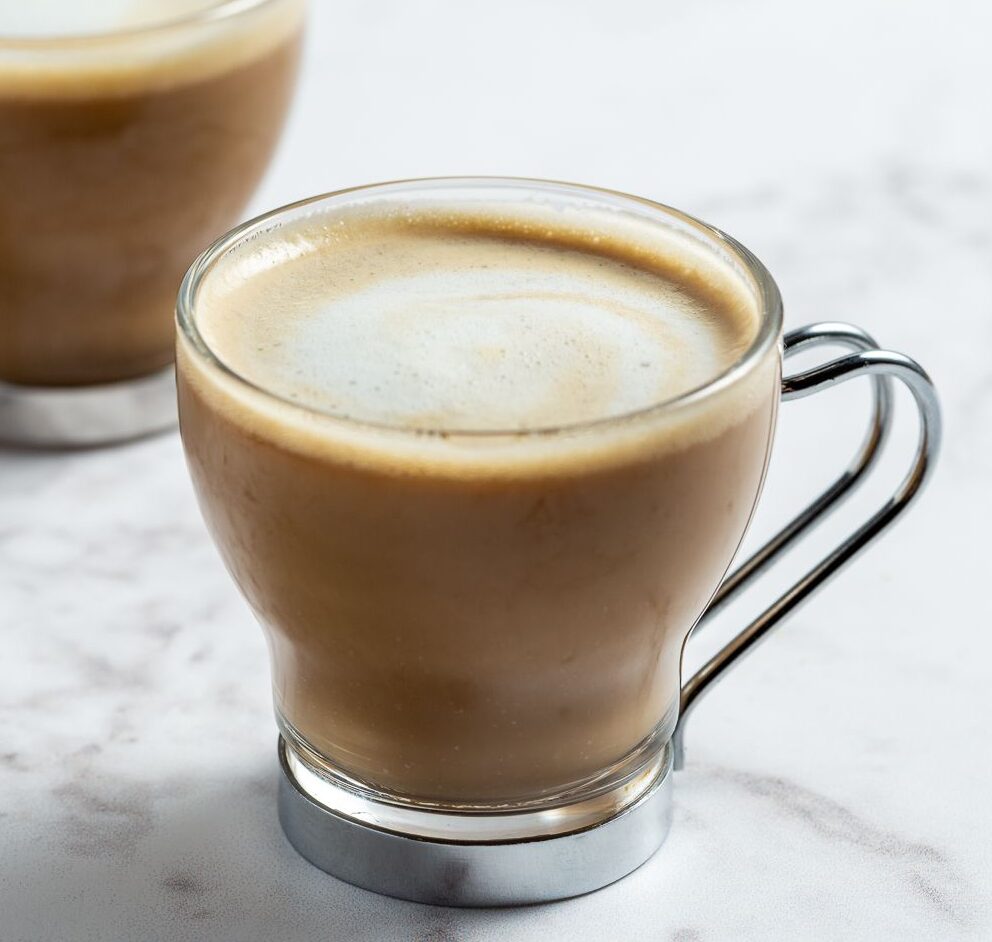
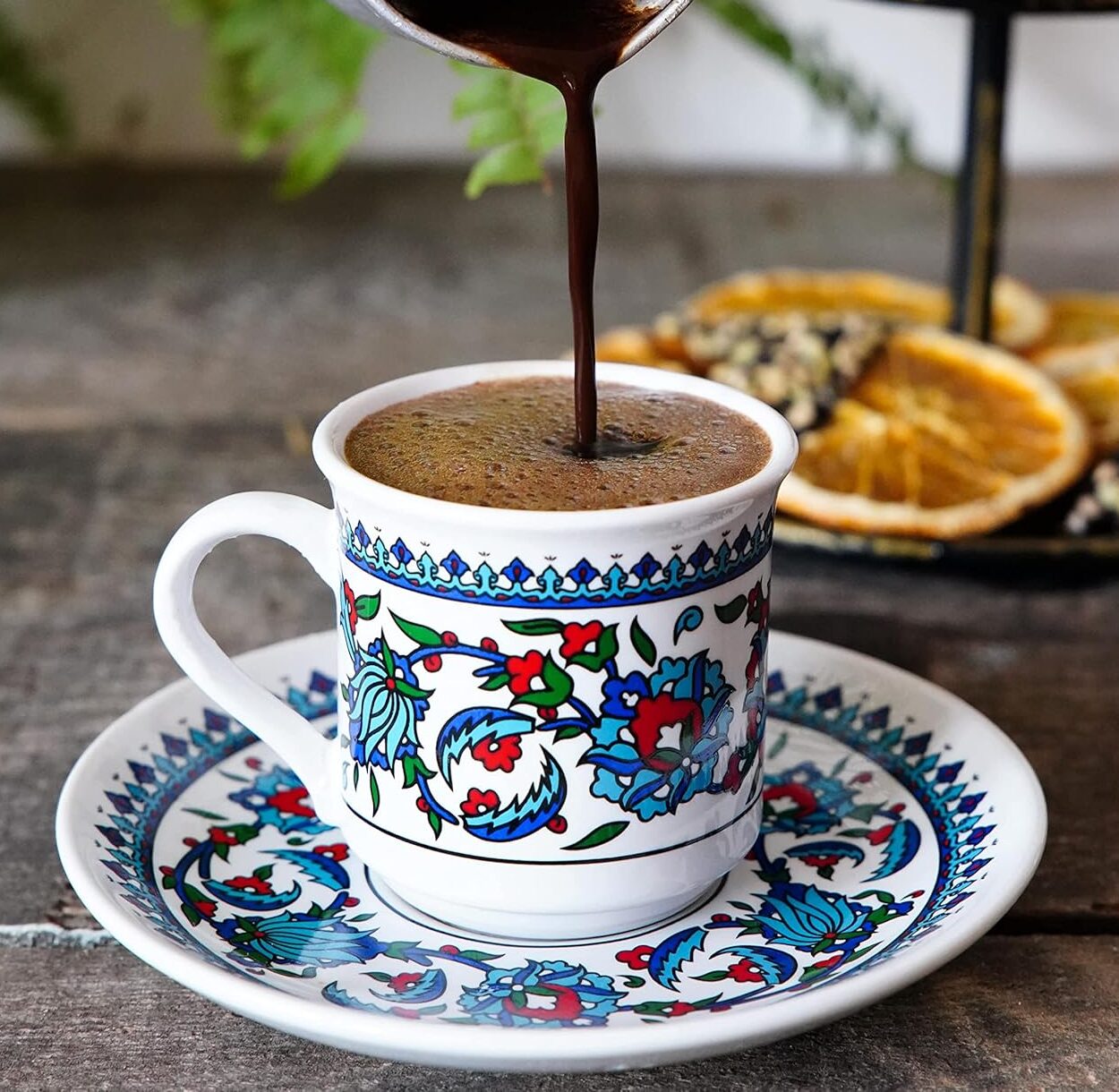
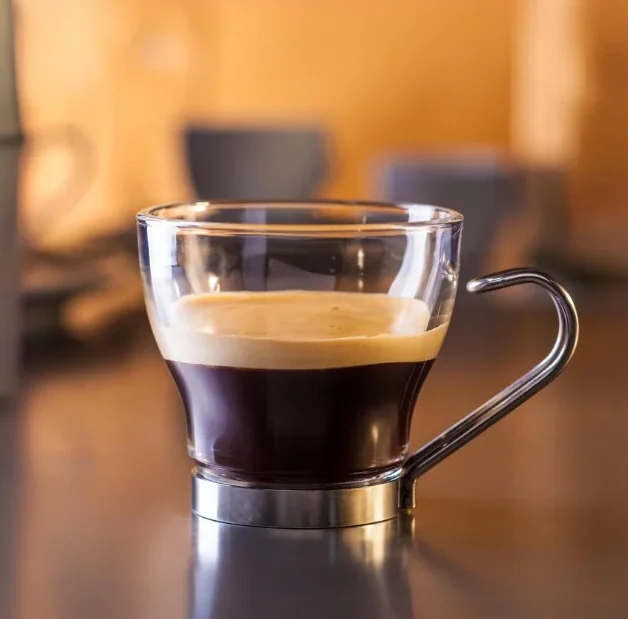
What to Consider Before Buying a Coffee Maker
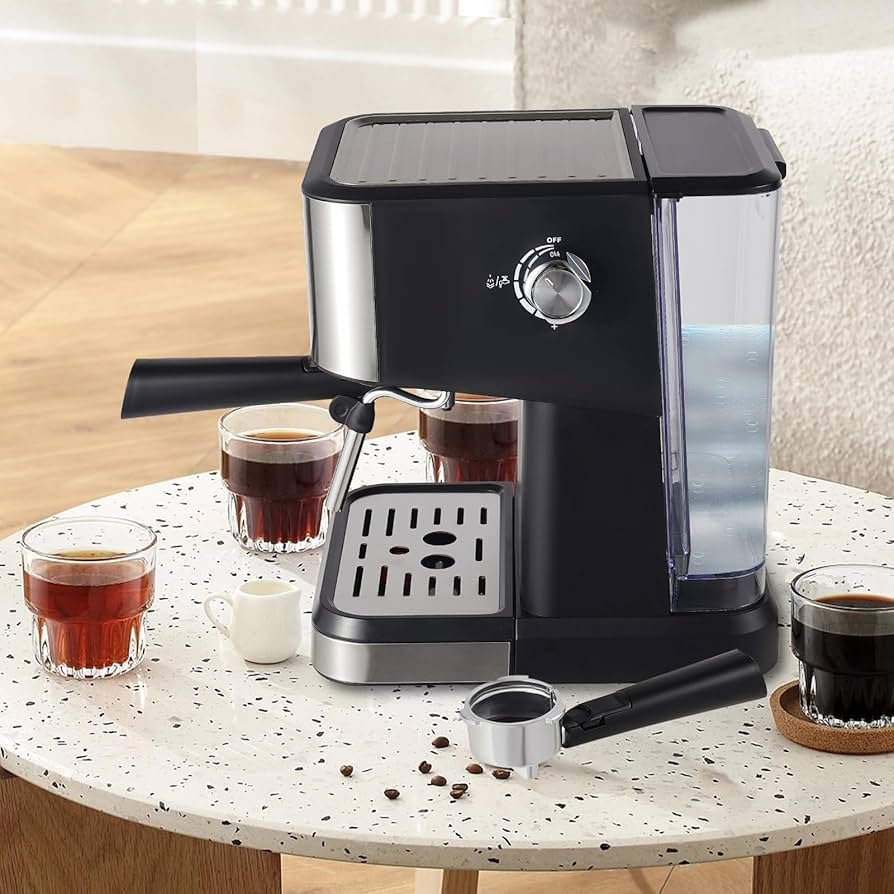
Frequently Asked Questions (FAQs)
General Coffee Maker Questions FAQs
- What is the best type of coffee maker for me?
The best coffee maker depends on your preferences and lifestyle:- Drip Coffee Makers: Best for brewing multiple cups at once, ideal for families.
- Single-Serve Machines (Keurig, Nespresso): Convenient for individuals who want quick coffee without hassle.
- Espresso Machines: Perfect for those who love strong, café-quality coffee and milk-based drinks.
- French Press: A simple, hands-on method that produces a rich and full-bodied brew.
- Cold Brew Makers: Designed for those who enjoy smooth, less acidic iced coffee.
- Moka Pots (Italian Coffee Makers): Ideal for those who love a strong, espresso-like coffee without an expensive machine.
Buying and Choosing a Coffee Maker FAQs
- How much should I spend on a coffee maker?
- Budget-Friendly ($20-$100): Basic drip coffee makers, single-serve pod machines, and French presses.
- Mid-Range ($100-$400): Higher-end drip machines, espresso machines with frothers, and all-in-one brewers.
- High-End ($400-$1,500+): Professional espresso machines, premium fully automatic brewers, and smart coffee makers with app integration.
- What features should I look for in a coffee maker?
Consider the following:- Brew Size Options: Single cup, travel mug, or full carafe.
- Customization: Strength control, temperature settings, and programmable timers.
- Built-In Grinder: Freshly ground coffee enhances flavor.
- Milk Frother: Essential for making lattes and cappuccinos.
- Ease of Cleaning: Removable water tanks and self-cleaning functions save time.
- Is it better to use coffee beans or pre-ground coffee?
- Whole beans retain more flavor and freshness; grinding just before brewing ensures the best taste.
- Pre-ground coffee is convenient but loses freshness faster.
- Solution: If convenience is key, buy vacuum-sealed pre-ground coffee or get a coffee maker with a built-in grinder.
Brewing and Coffee Quality FAQs
- What is the difference between drip coffee and espresso?
- Drip Coffee: Uses gravity to filter hot water through coffee grounds, producing a milder, larger cup.
- Espresso: Uses high pressure to force water through finely-ground coffee, creating a concentrated, bold shot with crema.
- Can I make espresso with a drip coffee maker?
- No. Espresso requires high pressure (9-20 bars) to extract rich flavors and crema. A drip coffee maker brews at lower pressure and cannot produce real espresso. However, some strong brew settings can mimic espresso-like intensity.
- What’s the best coffee-to-water ratio for brewing?
- Drip Coffee: 1-2 tablespoons of coffee per 6 ounces of water.
- French Press: 1:15 coffee-to-water ratio (e.g., 30g coffee per 450g water).
- Espresso: ~18g coffee per double shot (36g liquid).
- Cold Brew: 1:4 ratio for concentrate, 1:8 for ready-to-drink cold brew.
- Can I use regular coffee in an espresso machine?
- No. Regular drip coffee is too coarsely ground and won’t allow proper espresso extraction. Use espresso-specific fine-ground coffee.
- What type of coffee maker makes the strongest coffee?
- Espresso Machines & Moka Pots: Produce concentrated, intense coffee.
- French Press: Extracts more oils for a bold taste.
- Cold Brew Concentrate: Can be diluted to preferred strength.
- Machines with a “Strong Brew” Setting: Enhance intensity by increasing extraction time.
Coffee Maker Maintenance & Cleaning FAQs
- How often should I clean my coffee maker?
- Daily: Rinse removable parts and discard old coffee grounds.
- Weekly: Wash the carafe, filter basket, and any reusable filters.
- Monthly: Descale to remove mineral buildup (especially if using hard water).
- How do I descale a coffee maker?
- Use equal parts white vinegar and water. Run a brewing cycle, let sit for 30 minutes, then rinse with fresh water.
- For espresso machines, use a commercial descaling solution for best results.
- Why does my coffee taste bitter?
- Over-extraction (brewing too long) results in a bitter taste.
- Coffee grounds too fine can cause slow water flow, leading to bitterness.
- Dirty coffee maker: Old coffee residue affects flavor—clean regularly!
- Solution: Adjust grind size, brew time, and clean your machine often.
- Why is my coffee weak and watery?
- Under-extraction: Coffee grounds are too coarse or brew time is too short.
- Low coffee-to-water ratio: Increase the amount of coffee used.
- Water temperature too low: Ideal range is 195°F-205°F.
- Can I put milk directly into my coffee maker?
- No! Milk should never go inside a coffee maker’s reservoir, as it can damage the machine and be difficult to clean. Instead, use a separate milk frother or heat milk on the stove.
Iced Coffee & Cold Brew FAQs
- Can I use a regular coffee maker for iced coffee?
- Yes! Brew a stronger cup and pour it over ice. Some machines, like the Ninja Hot & Iced XL Coffee Maker, have dedicated iced coffee settings.
- What’s the difference between iced coffee and cold brew?
- Iced Coffee: Regular hot coffee cooled and served over ice.
- Cold Brew: Coffee steeped in cold water for 12-24 hours, resulting in a smoother, less acidic flavor.
- How do I make cold brew at home?
- Use a 1:4 coffee-to-water ratio.
- Steep coarse coffee grounds in cold water for 12-24 hours.
- Strain and enjoy over ice or dilute with milk or water.
Troubleshooting & Common Issues of Coffee Makers FAQs
- Why isn’t my coffee maker brewing?
- Check the power source: Ensure it’s plugged in.
- Water reservoir empty? Fill it to the appropriate level.
- Clogged filter? Clean the basket and remove trapped grounds.
- Descale the machine: Buildup inside can block water flow.
- Why is my coffee overflowing?
- Too much coffee or water added.
- Clogged filter basket.
- Using a grind that’s too fine (especially in drip machines).
- How long does a coffee maker last?
- Drip Coffee Makers: 5-10 years with proper care.
- Espresso Machines: 7-15 years, depending on maintenance.
- Single-Serve Machines (Keurig/Nespresso): 3-5 years.










